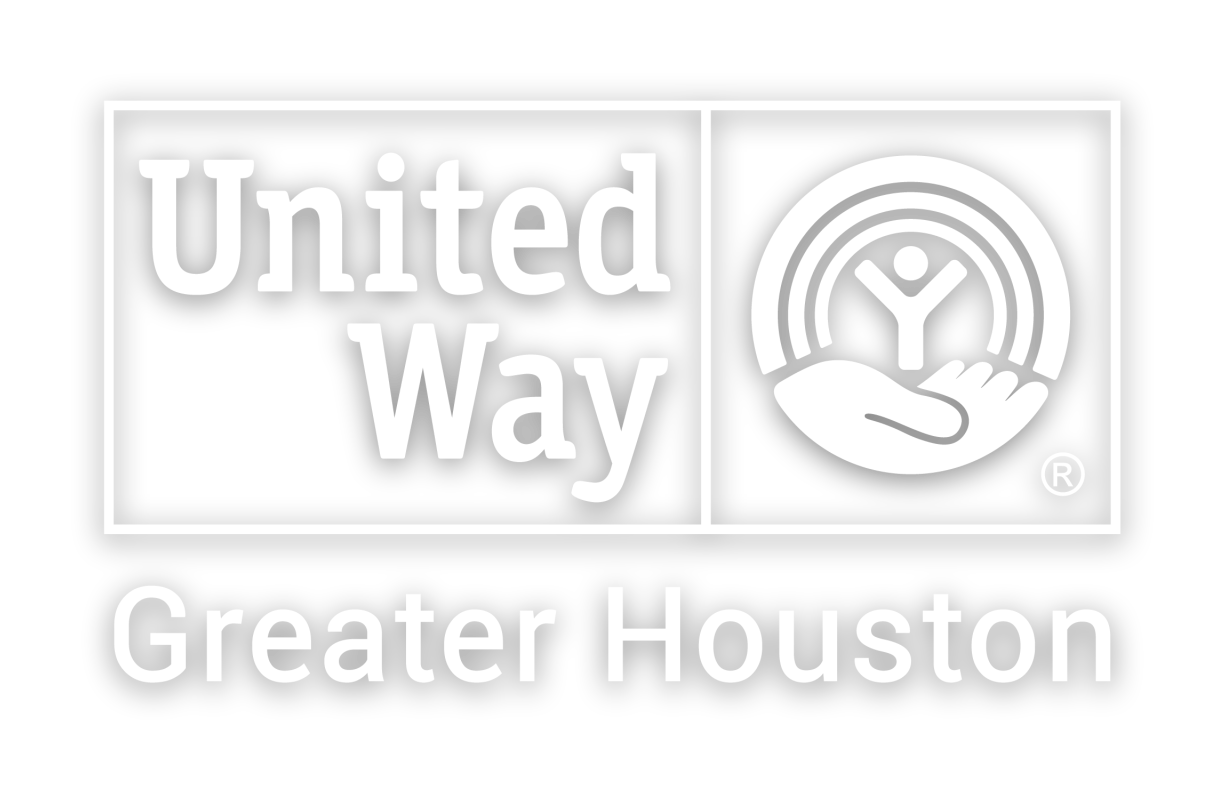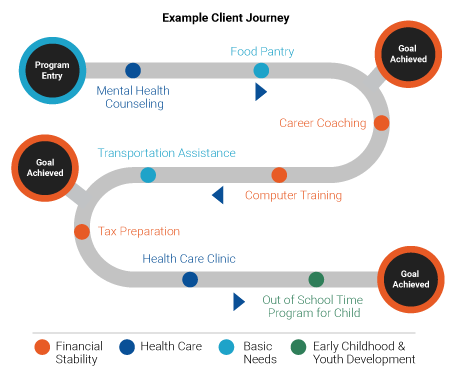For 100 years, United Way of Greater Houston has brought together diverse partners and approaches to get to the root of complex challenges holding people back. Guided by research and data, United Way invests in high-quality programs to create the opportunity for individuals and families in the Greater Houston community to thrive. We do this by leading, serving, influencing, and convening the nonprofit social services sector to deliver quality services with exceptional outcomes.
-
Key Principles of Our Operational Strategy
WHO Poverty population and ALICE (13% living in poverty + 31% ALICE)
WHAT Providing the opportunity to attain a sustainable quality of living via: financial stability, early child and youth development, health care, and safety net
WHERE Greater Houston Area (four-county coverage area includes Fort Bend, Harris, Montgomery, and Waller counties)
HOW Transformational change to how United Way approaches its work -
ALICE
United Way is focused on and investing in high-quality programs focused on serving the 31% of our neighbors experiencing ALICE (Asset Limited, Income Constrained, Employed) and those living below the Federal Poverty Level, another 13%.
Click here for more information on ALICE.
-
Integrated Client Journey
Someone experiencing ALICE could be a single parent with a preschooler and a child in school. He recently lost his job and is seeking employment. He wants the best education and opportunity for his two children. ALICE is resilient and resourceful, but he isn’t sure where to turn for help or how to navigate through different intake and qualification processes and multiple nonprofit organizations and services.
An integrated client journey allows a client to create their own customized pathway based on their goals and needs. Rather than working separately to address individual needs, programs are orchestrated to make it easy for clients to engage across services as needed, breaking down barriers and helping ensure clients can be successful. These services include financial stability services, supported by physical and behavioral health care, early childhood education, and youth development, all supported by safety net services that help people take care of their basic and immediate needs like food, shelter, clothing, and other critical needs such as refugee assistance, and freedom from violent situations like domestic abuse and human trafficking.
Funded partners provide programs that address clients’ varying needs as they move through their journey.

-
Interactive Regional Profiles Dashboard
The integrated client journey will operate across 12 priority regions within Fort Bend, Harris, Montgomery, and Waller counties. Use the interactive dashboard to explore the regions including ALICE data, demographics and zip codes included within each region. For a larger dashboard, or if you have trouble viewing, click here. To download the data from the dashboard, click here.
-
Resources
Comprehensive List of Eligible Services
Interactive Regional Profiles Dashboard
Common Metrics for Services and Integrated Client Journey
Funded Partner Standards and Policies
Qualification Criteria for ALICE
The 411 on Navigators within Integrated Client Journey
UWPC Self-Sufficiency and Well-Being Matrix and Userguide
Organizational Review Checklist -
Meet a Navigator
Navigators play a key role in the Integrated Client Journey (ICJ). Navigators assist clients in defining their goals and then provide an individualized pathway to specific services and programs through referrals and utilizing relationships to make connections for specific services.
Navigators work within a Navigation Team at an agency. The Navigation Team includes the Navigator, who works full time on Navigation duties, as well as staff members who are partially assigned to direct service Navigation duties and supervision so that the agency can serve clients without interruption if there is staff turnover.
Navigators can be described as empathic, compassionate, non-judgmental, motivating, and encouraging.
-
A key driver in our approach is technology that serves as the primary tool for navigators and individuals to track progress, while allowing United Way to make data-driven investment decisions, enable agency partners to use the data to improve service delivery, and report outcomes. The ICJ Data collaboration includes the data governance framework that includes the legal and technical aspects of sharing data through a technology tool across multiple partners. The Governing Body oversees the data governance framework.
To learn more about our progress toward the ICJ data collaboration, please see our newsletter:
-
Join Our Email List
Sign up here to receive the latest information on our vision, future funding opportunities, and more.



